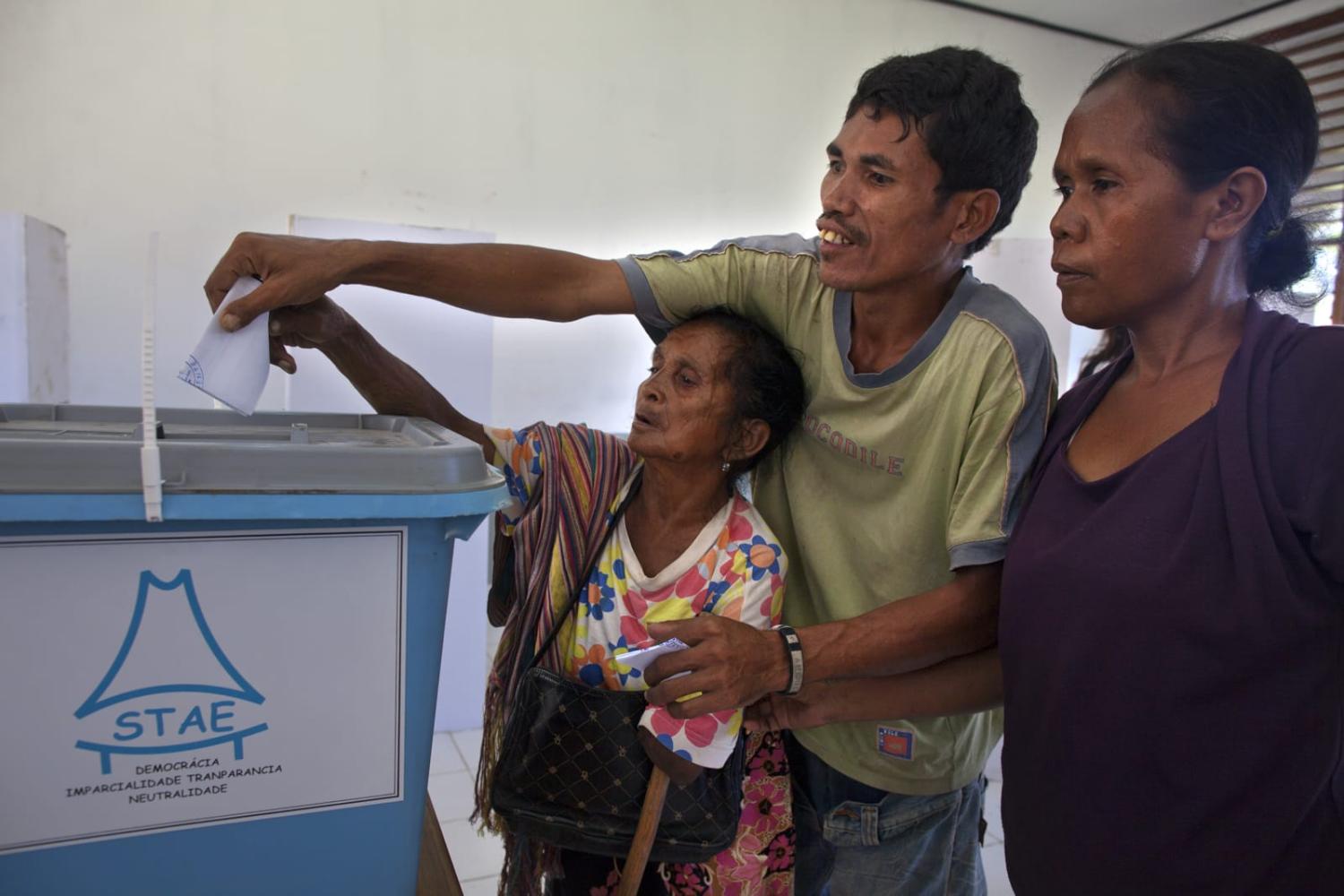Partido Verdes de Timor-Leste – a new political party contesting in Timor-Leste’s upcoming 21 May election – has committed to send a person with disability to parliament if elected. In so doing, the party is pioneering a move that will see political representation expanded to include minority and historically marginalised groups.
Twenty years of independence in Timor-Leste hasn’t done much to wear down stigma and discriminatory acts towards persons with disability, which estimates put at 3.2% of population. Government policies and programs continue to focus overwhelmingly on mainstream society with scant heed paid to disability inclusion. Unlike gender mainstreaming, disability inclusion in government budgeting is barely visible.
Timor-Leste has made some slow progress. In 2022, the country ratified the UN Convention on the Rights of People with Disabilities, laying the foundation and legal framework for safeguarding disabled people’s basic rights and guaranteeing equal access to public services. The ratification obliges the state and government to work towards inclusive development and to ‘’leaving no one behind’’ in government policies and programs.
A national action plan also sets a whole-of-government approach to disability inclusion. While the plan has been hailed as government attempting to honour its obligations under the UNCRPD, the inability to convert a 2014 plan into concrete actions meant that many goals remain unaccomplished.
Take education for example. Despite having adopted inclusive education policy since 2017, school infrastructure and materials including ramps and braille for physically- and vision-impaired children remain unavailable. It’s not surprising therefore, to see literacy rate among youth with disability is only 32% compared to 84% of their peers without disability – contributing to significantly higher unemployment rate (30%) for persons with disability in 15-24 years age bracket. And despite repeated calls for introducing 1% quota of employment for persons with disability in public sector, there a no signs of an official decree ushering in such a progressive move.
Fortuitously, professional training centres are beginning to recognise rights for persons with disability to access training and employment. This should address the supply side of the equation with work on building the confidence of businesses and employers to consider persons with disability in roles.
Access to health and justice are other lingering issues. The barriers faced by persons with disability in accessing services multiply when they intersect with other structural issues – for example, if they are women and living in rural areas. Inaccessible infrastructure due to the absence of universal building design codes, accessible transport system, and negative attitudes from healthcare workers and others are a hinderance. These barriers are commonplace – stalling ongoing disability inclusion and mainstreaming efforts.
A more diverse political representation that includes a voice of a person with disability in parliament can really change the dynamics of policy making. An elected person with disability can mobilise forces and resources in the parliament can combine with advocacy campaigns to fast-track disability inclusion efforts.
Homegrown evidence in Timor-Leste shows how powerful a more diverse representation can be. Following diversity quota introduction for women in 2007, women parliamentarians, backed by strong advocacy from women caucus and organisations, played key role in passing legislation including the progressive domestic violence law. Women have grown in numbers and influence in politics and employment. Having a person with disability elected to the parliament will undoubtedly have similar positive spill over effects.
For the moment what happens next will be determined by how well Partido Verdes performs at the ballot box. But win or lose this time, the hope is to inspire enduring change for the long-term.

